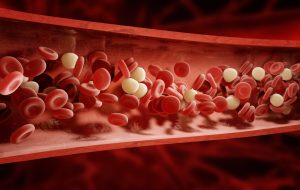Raising a healthy child is paramount for parents looking to give their children the best start in life. This means providing them with proper nutrition, adequate physical activity and ensuring they get quality sleep regularly. Unfortunately, many children today don’t meet the guidelines for healthy lifestyle habits. According to the Centers for Disease Control and Prevention (CDC), only one in three children are physically active daily. Over 11 million U.S. children between 2 and 19 years old are now considered overweight or obese.
Having unhealthy habits can lead to serious health issues in childhood and adulthood. Poorly managed dietary patterns can lead to nutrient deficiencies that affect growth and an increased risk of developing chronic diseases such as type 2 diabetes, high blood pressure, heart disease, stroke, and cancer in adulthood. A lack of physical activity increases the risk of obesity, poor posture, joint problems, compromised immune function due to decreased lymphocyte production (white blood cells responsible for fighting infections), poor mental health, and reduced ability to handle stress.
Parents will have to be strict when ensuring their kids remain healthy. Fortunately, focusing on these areas for health development can carve a path toward health.
Nutrition

Parents can focus on nutrition for their kids to ensure healthy growth. Proper nutrition is essential to providing energy, supplying necessary nutrients, and aiding physical and mental development. Parents should strive to provide a diet that meets their child’s daily nutritional needs and encourages healthy eating habits.
Regarding children’s diets, the American Academy of Pediatrics recommends parents focus on providing three meals and two snacks per day at regular intervals. When planning meals, it’s essential to consider the food pyramid guidelines, which suggest that you should fill half of a child’s plate with fruits and vegetables, one-quarter with proteins such as lean meats, poultry, eggs, beans, tofu or nuts; and one-quarter with grains such as whole wheat bread or oats. Children must also be exposed to various foods from each food group throughout the week so they don’t become picky eaters.
Parents should also be mindful of portion sizes when serving meals. According to the CDC, portion sizes have increased in recent years, leading to increased calorie intake among children. To avoid overfeeding your kids or having them overeat due to large portions, use smaller plates and cups when serving meals and snacks so your child isn’t overwhelmed by a heavy meal. Serve smaller amounts more frequently throughout the day instead of infrequent large meals, which can lead to unhealthy snacking later in the day.
Ensuring your child gets adequate nutrition is critical for developing healthy habits early on in life—and it’s never too late to start! By making small changes here and there, you can help create lifelong positive eating habits for your little ones leading them down a path toward health for years ahead!
Physical Activity
Adequate physical activity is also essential for children’s growth and development. It helps strengthen their bones and muscles, improve cardiovascular health, reduce stress levels, and increase overall mental well-being.
The CDC recommends that children aged 6-17 get at least 60 minutes of exercise daily. This can come from organized sports or other activities such as walking to school or riding bikes. For younger kids, shorter bouts of physical activity are beneficial too. For instance, 10 minutes here or there throughout the day can be just as effective as a single hour-long session.
However, parents should also ensure that their kids have time to rest between physical activities, so they don’t become overly tired or injured from overexertion.
Finally, it’s important to remember that physical activity should be fun for children; when kids enjoy their actions, they’re more likely to stick with them. Parents can encourage this by making time for family activities such as playing catch or going on nature hikes together.
Professional Help
As grownups as they might be, parents do not have all the answers regarding children’s health. There are times when professional medical help is necessary. If a child has been experiencing physical or emotional pain, it’s essential to consult a doctor or mental health provider. A physician can assess the situation and provide sound advice on how to improve the child’s health.
It’s also essential for parents to pay attention to any changes in their child’s behavior or emotions that suggest they need extra professional care. If your kid expresses sadness, fatigue, difficulty sleeping, irritability, or other symptoms of depression—it may be time for you to seek additional support from a mental health specialist.
However, it is dental health where professional help is essential. Regular visits to the dental clinic should be scheduled for children to ensure they have healthy teeth and gums. You can prevent cavities with regular brushing and flossing, but a dentist can check for any issues that may need treatment.
Final Thoughts
There are many things to consider regarding your child’s health. Eating a balanced diet and regular physical activity are essential for laying down the foundation of healthy habits that will last a lifetime. It’s also important to recognize when professional help is necessary, such as in emotional distress or dental health issues. With the right approach, parents can help ensure their children have a healthy life path for many years ahead!













